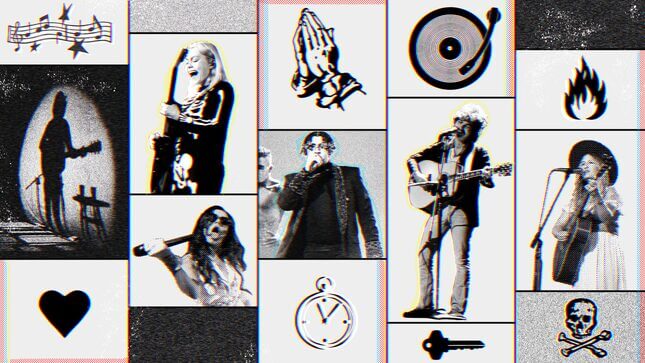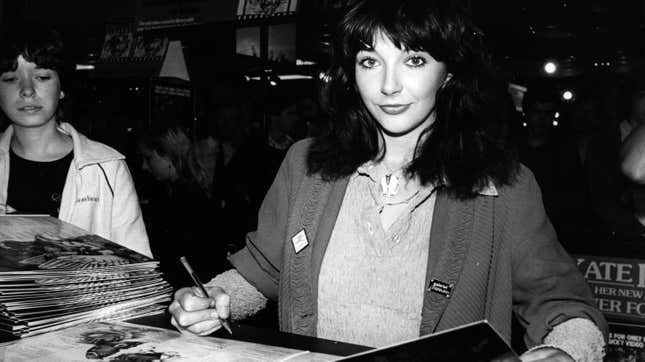
Graphic: Elena Scotti (Photos: Getty Images)
There’s no way to introduce this list without coming off dizzyingly earnest—good thing sincerity always plays when discussing something one actively enjoys! There was a lot of spectacular music that saved our asses this year. And not just the major label or critically exulted releases that tend to top every year-end list (though, of course, Phoebe Bridgers makes an appearance). In a year where very little felt good, the Jezebel staff managed to find at least some restorative or ruminative music to cry to; that is the say, the best stuff. Here are our picks for 2020’s most personal and therefore greatest music releases—all of which offered some solace when we need it most.
Charli XCX, “Anthems”
Can you make a party song in quarantine? Somehow Charli did, with this banger about restless online shopping, feeling bored out of your mind, and missing “the heat from all the bodies” at parties. Recorded in isolation and released in May, it’s the only piece of art I’ve consumed about being stuck inside this year that doesn’t feel navel-gazing or saccharine (see, that dreadful “Imagine” cover, bad essays by wealthy novelists, and a handful of Zoom-shot TV shows, oh god.) —Hazel CillsBad Bunny, “P FKIN R”
If I’m being realistic Bad Bunny’s entire album YHLQMDLG is what got me through this god-awful year, but “P FKIN R” was a special track because it harkens back to the one perfect thing that occurred this year, adopting my dog Chico. Chico is a rescue from Puerto Rico, where my family is from, so when I picked him up for the first time ever I played “P FKIN R” in the car to welcome him, so he knew he was amongst his own people. It’s our song, really. But aside from reminding me of Chico, who is the most handsome dog in all of Jezebel and likely the world, the aggression and swag that drips off that track has been a balm over sadness. Who has time to be sad when you’re trying to rap in Spanish for four minutes? Certainly not I. —Shannon MeleroPhoebe Bridgers, “Kyoto”
In March, I lost my apartment, as a global pandemic crashed down around us, and spared nothing. My husband and I took what we could in a U-Haul, but sold most of our stuff, as we now had no house except his mom’s place on the other side of the world, it felt like. I spent the early days of the pandemic locked up in a room that was not mine, curtains drawn, clothes dirty, hair unwashed. My own substance abuse worsened, and my husband began to binge-drink in secret. Sometimes we screamed out in the street, angry not at each other, really, but all the things it felt like we could not control. Mostly, though, I stayed inside that room and ran from him and the feelings of abject failure that plagued me most nights. In May, I broke. A dream had come to me, of his funeral, and then mine. The next morning I said that if we could not change, at least for ourselves, then we should divorce. I got a therapist, and he pledged to attend meetings. Needing space, I began to take some walks alone each night with his mother’s dog, who we’d been tasked with caring for. It was here that Phoebe Bridgers’s Punisher broke me, again. The dog and I were in a park, right when the sun had dipped below the horizon, and the mountains of Southern California were bathed in golden light. “I’m gonna kill you / If you don’t beat me to it,” she sang. It wasn’t that I felt god in that moment, since I don’t believe in god anymore, but something like god. The grass was damp beneath my feet, and I sat there on my knees for some time and cried until a well-meaning stranger asked if I needed help. I didn’t, not in any way she could provide. I’d already found what I’d searched for. It was enough to keep going. —Joan SummersSpecial Interest, “Don’t Kiss Me In Public”
So much music saved me in 2020—a year I will remember as the longest period I’ve gone without seeing live music since adolescence, when I wasn’t in control of where I went or when I went there. I’ve found myself ravenous for new music, a heightened sense of hunger for discovery as something of a coping mechanism. I’ve spent more money on physical music media this year than I have ever before—Bandcamp Fridays are to blame—and it’s felt rewarding to support musicians directly, especially when governmental forces have failed to do so, when they, and venues, and music laborers of all kinds, are most vulnerable. But the song that comes to mind most when I think of this year is one I discovered well before isolating in my apartment and learning to wear a face mask whenever I exit it: New Orleans synth punks Special Interest, and their song, “Don’t Kiss Me In Public.” (The title now feels ironic, or prescient, or both.) The music is something of an innovation: techno, industrial, anarcho art punk in one breath, basement hardcore that is a funny, absurd, and self-aware performance. I’ve been scream-singing, “And I laugh / And I cry / Boo hoo hoo / Ha ha” all year, dancing to its folly, and embracing the liberation the song espouses. —Maria Sherman-

-

-

-

-

-

-

-

-

-

-

-

-

-

-

-

-

-

-

-

-

-

-

-

-

-

-

-

-

-

-

-

-

-

-

-

-

-

-

-









































